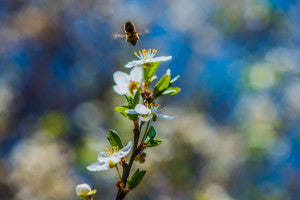Bayer revises position to propose extra protections for bees from pesticides
The pharmaceutical giant had initially accused the EPA of overstimating the impact of pesticide on pollinators but now admits report is 'scientifically sound'

A preliminary risk assessment released by the EPA last week found that that imidacloprid, one of the world's most common pesticides, can cause honeybee populations to fall in some circumstances.
The agency determined that imidacloprid in nectar at levels of 25 parts per billion or above were harmful to colonies, which have suffered an alarming decline in abundance over the past year.
Two crops - citrus and cotton - exceeded this level for imidacloprid, which is in the neonicotinoid class of insecticides, while bees visiting potatoes, rice, corn and wheat didn't face as great a risk. Further work needs to be done to assess the threat of imidacloprid upon bees that interact with other plants.
Bayer, a dominant player in the neonicotinoid pesticide market, initially said the report "appears to overestimate the potential for harmful exposures in certain crops, such as citrus and cotton, while ignoring the important benefits these products provide and management practices to protect bees".
But the company has now clarified its stance, telling the Guardian that it believes the assessment is "quite good and scientifically sound". A spokesman said Bayer will look to work with the EPA to reduce risks to bees.
For the full article, visit www.theguardian.com.

